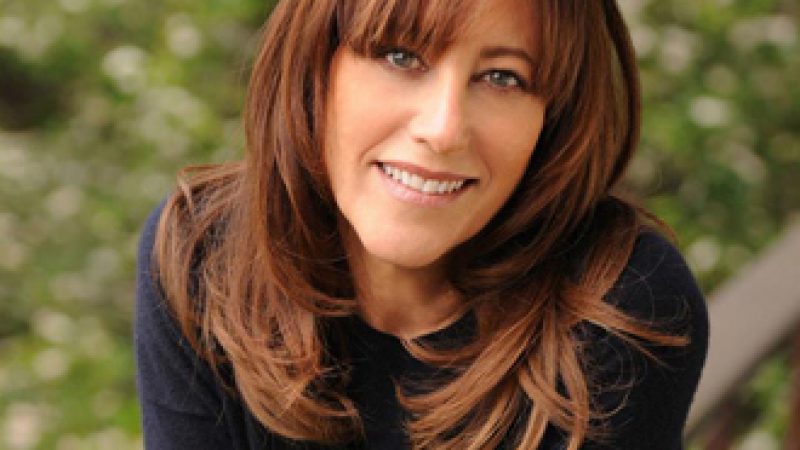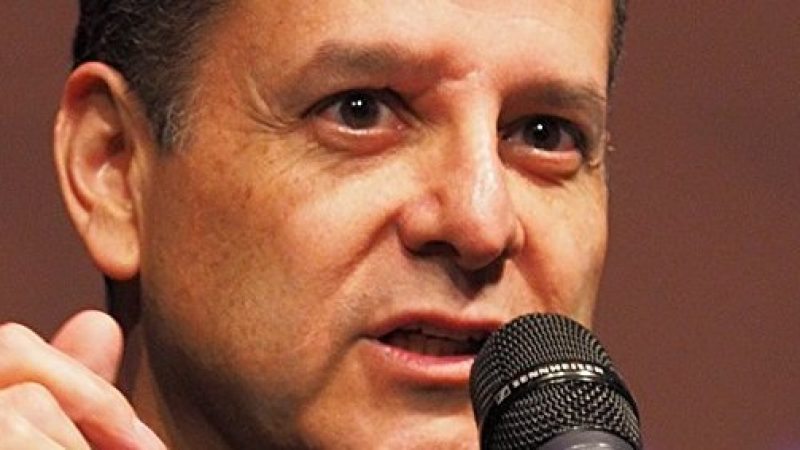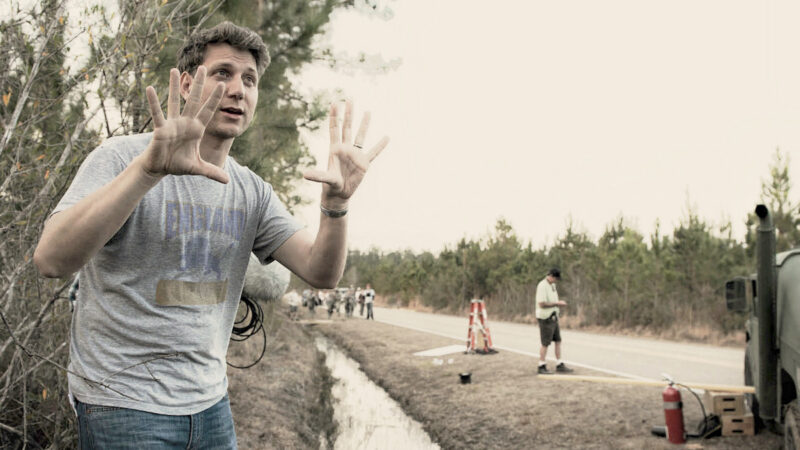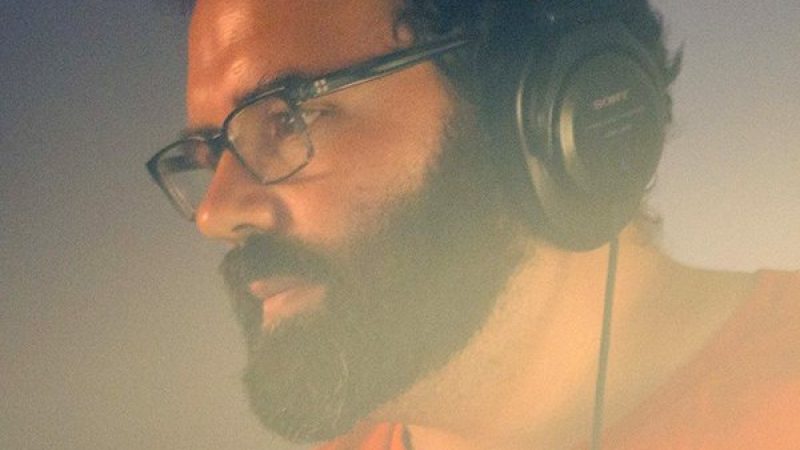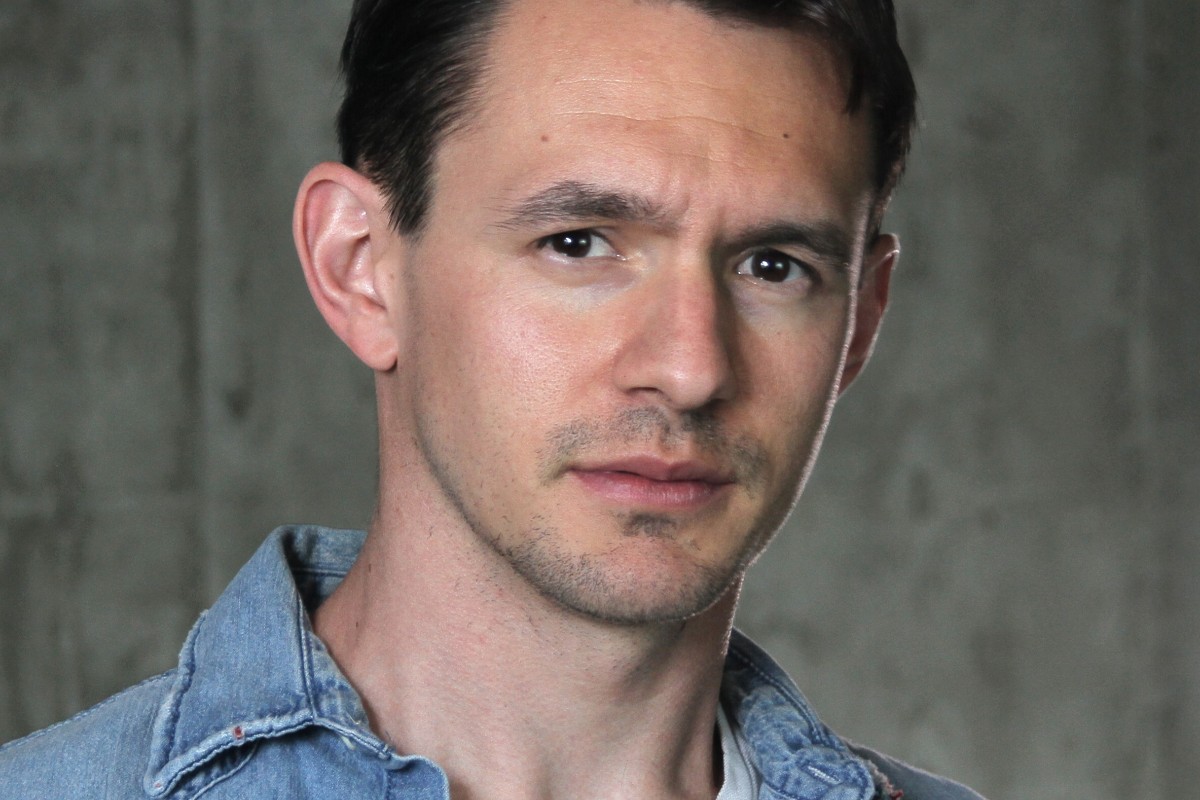
Jason Potter was always a performer from birth who flourished in the spotlight. Despite the lifetime of blatant signs, it wasn’t until he went to school for film production that he discovered his love for the craft. In film school, they were always short on actors and couldn’t afford to hire professionals, so Jason began acting in fellow classmates’ projects including all of his own. Jason Potter started taking acting classes and found that understanding a character begins in understanding himself. It was such a pure way of expressing art and he was hooked. Every set, show, and film he got to work on was validation of those beliefs and there’s no better job than the one that feels brand new every day.
indieactivity: What acting technique do you use?
Jason Potter (JP): I continually study acting in a workshop and learn all sorts or techniques; Anything from Chubbuck, archetypes, to method. In all honesty, I use a blend of them now that I couldn’t identify the threads in specific. I just make sure I deep dive in the imagination of my character and commit to the choices. My prep and process from all my years of training will then begin to fill in depending on what the role requires. No two roles are the same and neither are the tools I use to build them. And having the understanding on the other side of the camera didn’t hurt the learning curve either.
Official Trailer for AFTER MASKS from producers John Crockett, Brian McCulley, and Jason Potter
How did you get connected to the project? Did you audition? If you did, would you still have gotten the part?
Jason Potter (JP): Brian McCulley called me about a week after the shutdowns began. He was brainstorming ways to maximize our creativity during such a dull, isolated time and the idea of an anthology film shot during the lockdown was the result. Brian then came up with his story segment titled ‘Quarantales’. “Andy” was the character I played in the segment and Brian and I bounced around ideas over the phone for several days on what his story was going to entail. Believe it or not, Brian had originally written “Andy” as a clown that hid from his insecurities behind the wigs and paint. Juggling was not in my wheelhouse of talents. Sticking with the street performer idea, the character was reworked to cater more of my natural skills which include my guitar playing and thus “Andy” was born, the 16th Street entertainer in his forced journey of inner discovery.
Let’s take this project you did; how did you prepare for such a role: the cast, the physicality, the terrain, the climate, the weather, and the demands of the project?
Jason Potter (JP): The demands were very unique being that under the restrictions I had to film most of the scenes by myself. Not only was I being the actor, but I had to be the DP, Grip, Sound Mixer, everything. Zoom calls, Zoom calls, zoom calls. Making sure the shots were set up right to Brian and John’s liking. That’s just the technical aspect, the acting was a very different challenge. Andy moves through a range of emotions including a very emotional breakdown scene. It was extremely important that I compartmentalized the behind-the-camera Jason and focus on the actor Jason when I needed to. Luckily, filming by myself, on my own schedule allowed me all the time I needed to get to where I needed to be.
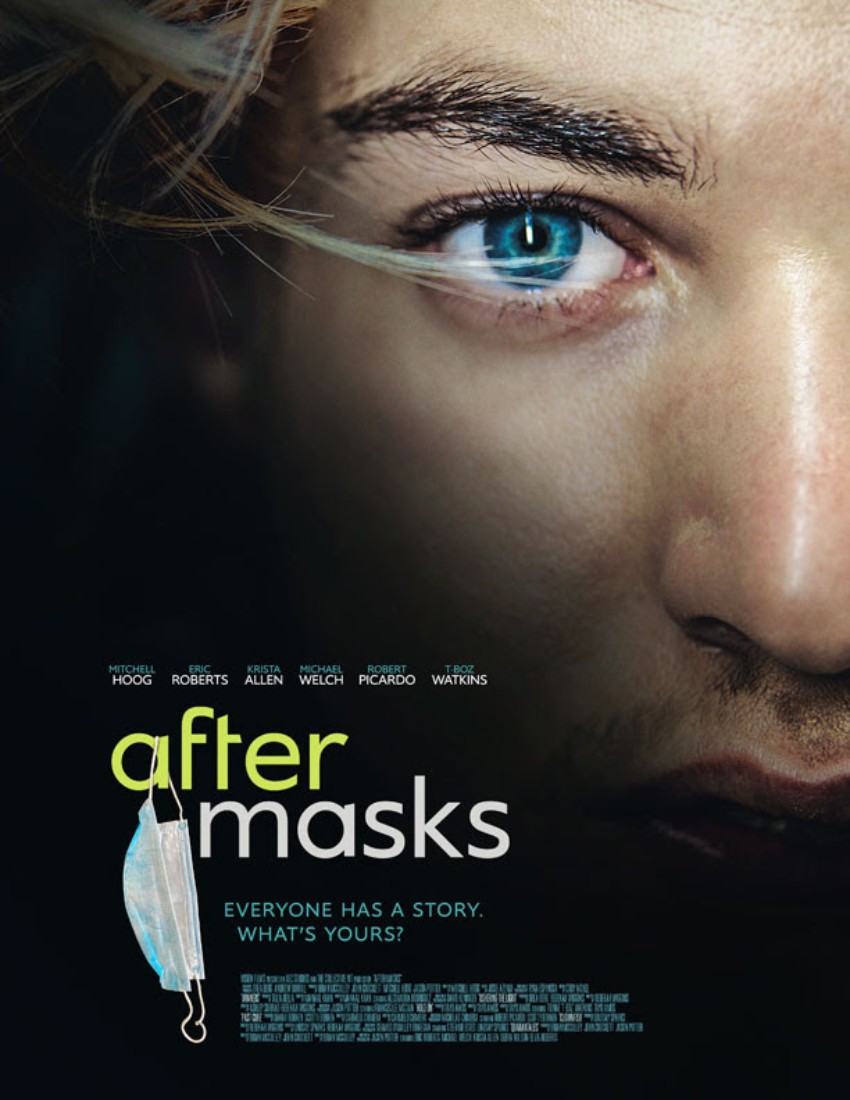
As one of the cast on the project, how did this ‘choice’ work for you?
JP: I am actually accustomed to working on both sides of the camera while giving my 100% to each role. I have been on plenty of low-budget projects where wearing multiple hats was necessary. So, I’ve had my practice. It did take a mental shift, however, filming in my own house when I’m used to being on another set.
How do you create the character from a script into a person?
JP: I really relate to Andy. Being a person who grew up wanting to put on a show, it was always easy to lose myself in the act of being the person I want people to see. I was able to pull my own insecurities from that journey. I really felt that Andy’s biggest battle was with being delusional. And the concept of Andy was to have a “layered” effect where physical items can be removed to parallel his shedding of that delusion. That was easy to build off of and create a beautiful yet tragic character.
What part of the story challenged you when you read it? What drove you to get on the project?
JP: This may be my most intense emotional work on screen to date. There was a lot of emotional prep and with the amazing direction of Brian and John, I was able to get there. I have wanted an opportunity to show some of my more emotional range and this project gave me that chance
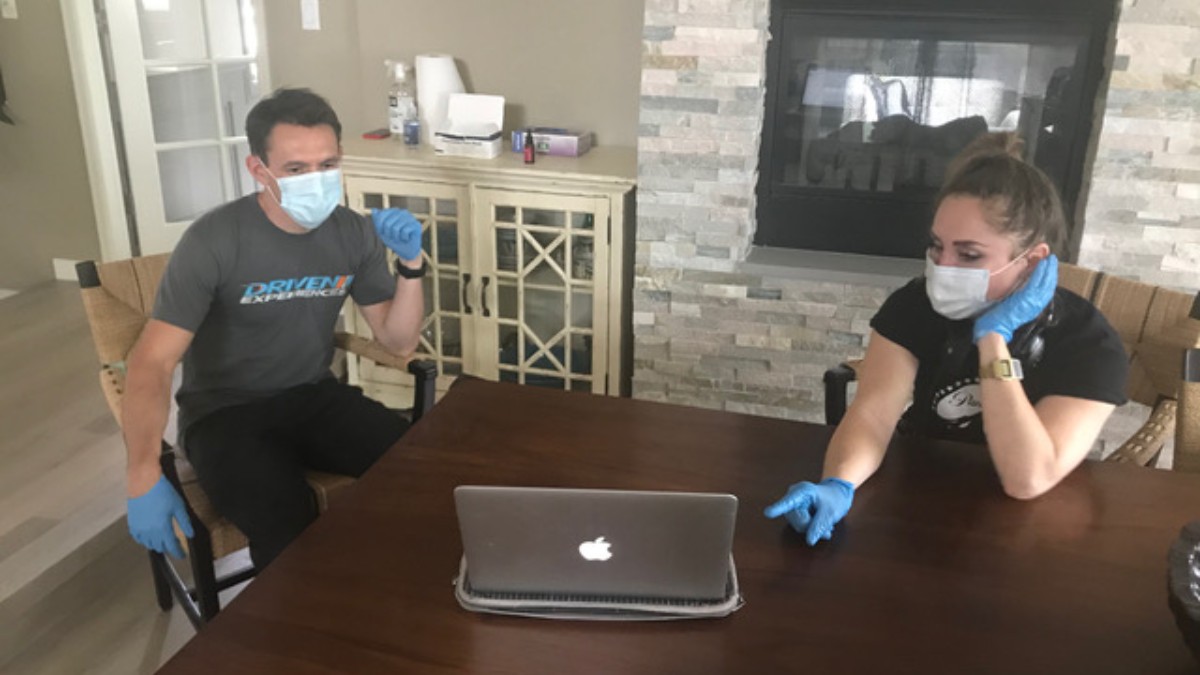
Explain one creative choice you took on the set of this production?
JP: There were a few shots that I had added in that weren’t in the script at all. Apart from the title cards, I wanted to show the passage of time by the growth of my facial hair. We had already shot a handful of scenes with a more shaven face, so I decided to add in the shot of me shaving. That shot became a well-needed transition in the final edit. Became one of my favorite shots too.
You’re not new to indie films. What do you enjoy about the work that keeps you working?
JP: There is a sense of some creative freedom and collaboration that is truly enjoyable. I have worked everything between no-budget sets and large studio sound stages. Do I have a favorite? No. They both come with their pros and cons. But in terms of indie productions there is such a community feel that is built with the cast and crew around you. Everyone shares the hardworking dedication, the stresses, the late nights, and no one will ever forget the experience. It is special.
Give an example of a direction you received from the director during the production?
JP: When “Andy” returns home from his failed street performance, he throws the guitar down and begins to expel his pent-up frustration. Brian and John wanted to show that release of frustration while also being internally held. They wanted “Andy” to be so conflicted inside that he couldn’t even expunge his anger purely, saving that raw floodgate to occur later for a bigger punctuation. It was a beautiful detail.
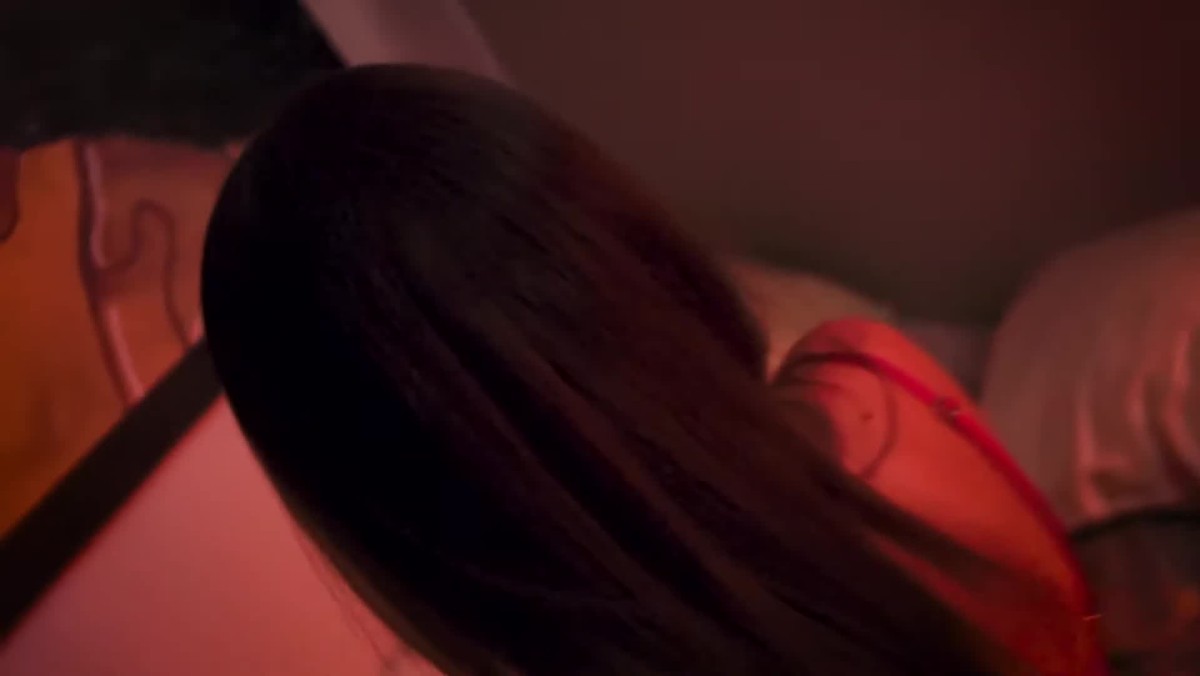
How did you collaborate with your cast members from scene to scene?
JP: Quarantales is basically an anthology within an anthology. There are 6 different character’s stories playing out without any interaction between them. It was important to not have any character overlap too much with the next, so it took careful consideration of the entire script to understand how our characters are dynamic from one another.
As the main cast in the film, describe the feeling of responsibility that you shouldered. Were you scared? Or did it fire you up? What scenes were difficult to shoot?
JP: It was daunting to say the least. The pressure was on all sides on this one. I had to properly light my own scenes, white balance the camera, and do my own make-up (probably the scariest of them all). I was sending Brian and John the takes to review and take notes. I had creative freedoms that way, but I knew every aspect of what I was sending them was up for scrutiny. My history and training really coalesced and came in heavy on this one. Truthfully, I was ready for it and thrived under that pressure.
What did you take away from the film production?
JP: I never realized how important a traditional film’s process is until we were forced to reinvent it.
What do you like most about the director, and his/her collaboration with his/her team?
JP: Brian and John are actors’ directors. They have a very rich history as acting coaches and understanding of the craft, so they have an amazing way of communicating with the actors. In other words, they can explain their vision in an actor’s language. They are like the key on the back of a toy that they wind up and let go, leaving the actor some freedom on some character choices. Their goal was to grasp some real and raw emotions and were willing to see where those colors ended up. The result, honestly, is beautiful.
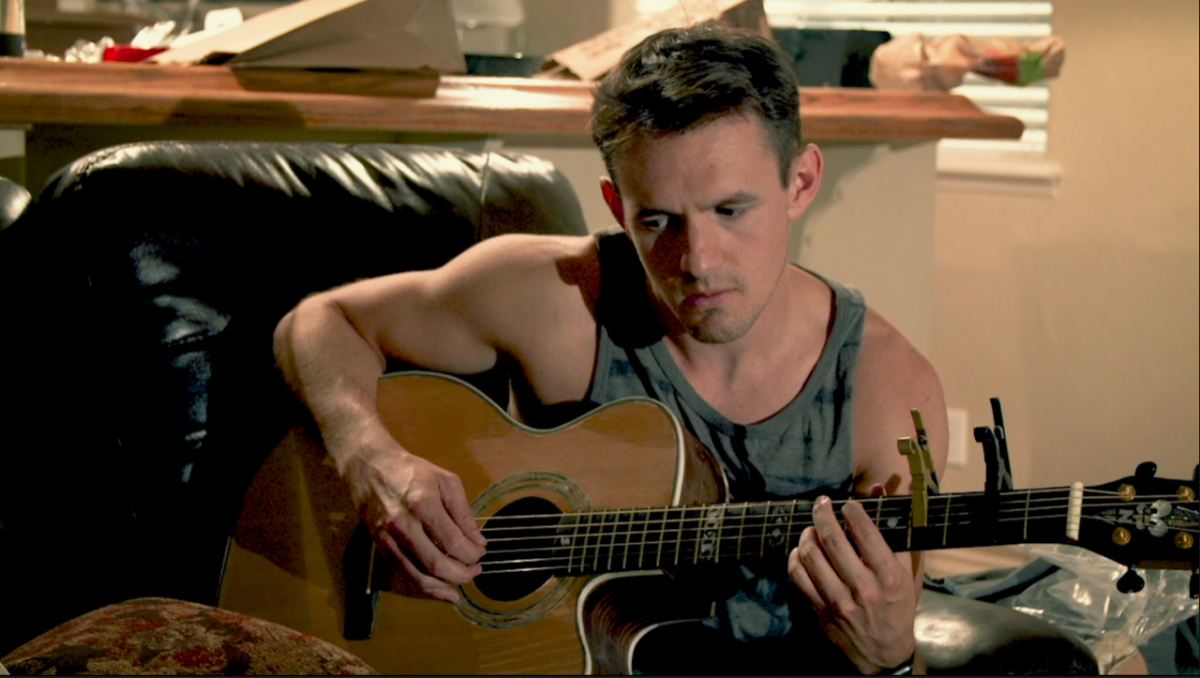
What is next for you?
JP: I will be in a thriller/horror film titled “Sin Eater,” streaming this fall. It’s an indie film I’m proud to say I have multiple responsibilities on once again. I am also cast in the upcoming season of “American Crime Story.” I’m not sure how much I am able to say about it, but I will say it’s a great production.
What advice do you give actors regarding what you learned on the project?
JP: This is undoubtedly a unique project in terms of how restrictive it was shot. But I learned that knowing my acting process and having it cemented in concrete was extremely important in the success of my role in all of this. Because every film production is different, and it will find a way to throw you off your game if you aren’t locked in your own process. For the sake of our industry (and frankly the world), I hope no one is forced to produce a film in such a difficult and isolated manner, but it is good to be prepared for anything. This film tested our creativity to the max, and we are all better for it.
Tell us what you think of the interview with Jason Potter. What do you think of it? What ideas did you get? Do you have any suggestions? Or did it help you? Let’s have your comments below and/or on Facebook or Instagram! Or join me on Twitter.
Follow Jason Potter on Social Media
Website
IMDb
Facebook
Instagram
MORE STORIES FOR YOU
Director Amy Glazer Brings Kepler’s Dream to Life
An 11 year old searches for a missing rare book from her grandmother’s library
How I Made My Film, ‘Fear, Love & Agoraphobia’ by Alexander D’Lerma
A Step by Step Filmmaking Process of Fear, Love & Agoraphobia
The Key Facts Behind How Jeff Nichols Made The Indie Hit MUD
Jeff Nichols gives himself directorial challenges to master on every project.

